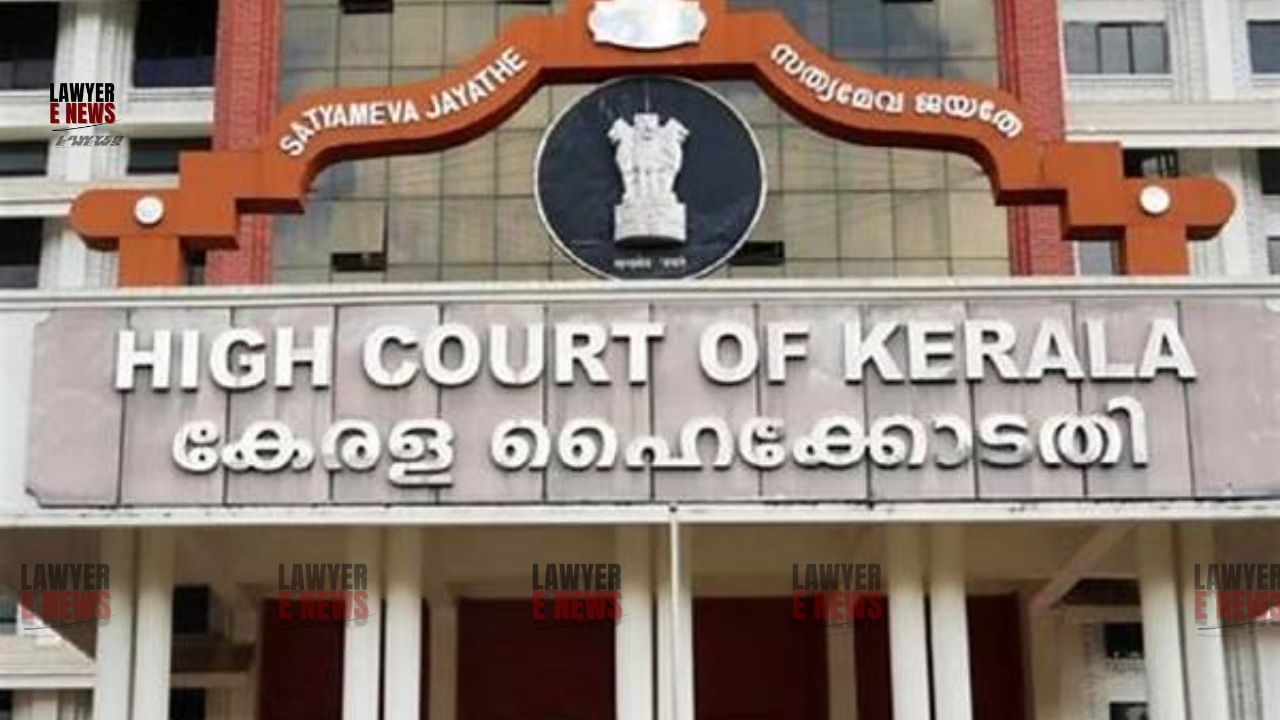-
by Admin
15 February 2026 5:01 PM



Kerala High Court granted bail to Bijoy Thomas, the petitioner accused in a high-profile case of cheating, abetment of suicide, and breach of trust under Section 108 of the Bharatiya Nyaya Sanhita (BNS), 2023. The petitioner had been in custody since October 12, 2024, for allegedly receiving Rs. 65 lakh from the deceased, Saranya, and her relatives, on the pretext of arranging a job in Australia. When the petitioner failed to deliver on his promise or return the money, Saranya reportedly died by suicide.
While granting bail, Justice P.V. Kunhikrishnan emphasized that further investigation was required to determine whether the charges under Section 108 of the BNS were attracted. However, adhering to the well-settled principle that "bail is the rule and jail is the exception," the Court granted bail to the petitioner, subject to stringent conditions, to ensure the integrity of the investigation.
The prosecution alleged that Bijoy Thomas, the accused, had collected Rs. 65 lakh through Saranya's bank account as well as from her friends and relatives on the assurance of securing her a job in Australia. Despite repeated demands, the petitioner failed to arrange the promised job or refund the money. Saranya, unable to cope with the financial and emotional stress, allegedly died by suicide.
The petitioner was charged under Section 108 of the Bharatiya Nyaya Sanhita, 2023, which pertains to abetment of suicide. His arrest was recorded on October 12, 2024, and his bail application had been opposed by the prosecution on the grounds of the serious nature of the allegations and the pending investigation.
The Court, while considering the bail application, noted that the question of whether the petitioner’s actions constituted abetment of suicide under Section 108 of the BNS required further investigation and refrained from making conclusive observations on the merits of the case.
Justice P.V. Kunhikrishnan acknowledged that the petitioner had multiple cases registered against him but observed that continued detention was not warranted in the present case. The Court cited the well-established principle of bail jurisprudence, as laid down by the Supreme Court in several landmark rulings, including P. Chidambaram v. Directorate of Enforcement (2019) and Jalaluddin Khan v. Union of India (2024), which reaffirm the importance of granting bail in deserving cases to ensure the right to personal liberty under Article 21 of the Constitution.
"The basic jurisprudence relating to bail remains the same, inasmuch as the grant of bail is the rule and refusal is the exception, so as to ensure that the accused has the opportunity of securing a fair trial."
The Court further cited Manish Sisodia v. Directorate of Enforcement (2024), observing:
"Bail is not to be withheld as a form of punishment. Denying bail in straightforward cases leads to unnecessary pendency of bail petitions in higher courts."
While allowing the bail application, the Court imposed stringent conditions to prevent misuse and ensure smooth progress of the investigation. The petitioner was directed:
To execute a bond for Rs. 50,000 with two solvent sureties for an equivalent amount.
To appear before the investigating officer as and when required.
To cooperate fully with the investigation and refrain from inducing, threatening, or influencing witnesses.
To not leave India without prior permission from the jurisdictional court.
To not commit any similar offences during the bail period.
The Court also clarified that any violation of these conditions would empower the jurisdictional court to cancel the bail. The prosecution and the victim’s family were given the liberty to approach the jurisdictional court if they observed any such violations.
This judgment underscores the Kerala High Court’s adherence to the principle of balancing personal liberty with the integrity of the judicial process. It highlights that bail is not to be denied as a punitive measure, even in cases involving serious allegations, unless there is clear evidence to justify continued detention.
The decision also sets an important precedent for interpreting Section 108 of the Bharatiya Nyaya Sanhita, 2023, a provision under the recently enacted penal code, and emphasizes the need for courts to assess the applicability of new provisions carefully during the investigative stage.
Date of decision : December 12, 2024
